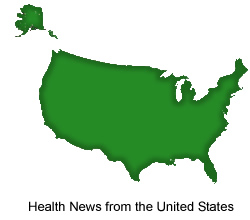
Date Published: 27 April 2011
Vitamin E helps reduce nonalcoholic fatty liver disease in children

A specific form of vitamin E has been found to improve nonalcoholic fatty liver disease (NAFLD) which is the most severe form of fatty liver disease in some children. This is the outcome of recent research funded by the National Institutes of Health (NIH), the United States medical research agency. A previous study had also found vitamin E to be effective in some adults with the disease.
Nonalcoholic fatty liver disease (NAFLD) is the most common chronic liver disease among children in the United States. Nonalcoholic fatty liver disease ranges in severity from steatosis (fat in the liver without injury) to nonalcoholic steatohepatitis or NASH (fat, inflammation, and liver damage). Nonalcoholic fatty liver disease is also believed to increase a child's risk of developing heart disease and liver cirrhosis. At present the only medically approved way to distinguish NASH from other forms of fatty liver disease is via a liver biopsy. Medical experts suggest that weight loss may reverse the disease in some children but, other than dietary advice, there are no specific treatments.
Most children with nonalcoholic fatty liver disease are overweight and resistant to insulin, a critical hormone that regulates energy. Boys are generally more likely affected than girls, as are Hispanic children compared to African-Americans and whites. Using liver biopsies, researchers found that after 96 weeks of treatment, 58% of the children who were taking vitamin E no longer had NASH, compared with 41% of the children who were taking metformin (a diabetes drug), and 28% who were taking placebo. Vitamin E was thought to be better than a placebo because it significantly reduced enlargement and death of liver cells.
" These results suggest that vitamin E improves or resolves NASH in at least half of children, which we previously showed to be true in adults," said Stephen P. James, M.D., director of the digestive diseases and nutrition division at NIH's National Institute of Diabetes and Digestive and Kidney Diseases (NIDDK), which funded the study. While the results are encouraging, patients using vitamin E for NASH should be under a doctor's care.
"We hope to build on these results by looking for other therapies and reliable, non-invasive ways to monitor the disease and response to therapy."
The Treatment of Nonalcoholic Fatty Liver Disease in Children (TONIC) trial studied whether vitamin E (an antioxidant) or metformin could improve the health of children suffering from fatty liver disease. The measures of success considered and reported by the researchers were either a sustained reduction in the liver enzyme alanine aminotransferase (ALT) or improvements in the liver as shown by biopsies. A total of 173 children, mostly whites and Hispanics ages 8 to 17, were recruited into three treatment groups. The children received either 500 milligrams of metformin or 400 international units of a natural form of vitamin E or placebo twice a day for two years.
Neither vitamin E nor metformin were significantly better than placebo in reducing ALT levels. 26% of patients taking vitamin E, 16% taking metformin, and 17% taking a placebo had reduced liver enzyme levels. However, ALT levels improved more rapidly among patients on vitamin E (within six months) compared to those on placebo. The ALT levels among the children on placebo improved over the two years.
" We believe all children in the trial benefited from the frequent diet and exercise advice provided throughout the study," said Joel E. Lavine, M.D., Ph.D., a TONIC principal investigator and professor of pediatrics at Columbia University, New York.
" Now we have information on the natural history of a placebo group over time, which will help us design future trials."
Using biopsies in children with liver disease is unique.
" TONIC is ground-breaking on two fronts. It is the first study to use liver biopsy to evaluate potential treatments for any liver disease in children," said Patricia Robuck, Ph.D., M.P.H., the project scientist at NIDDK.
" It is also the first multi-center, randomized, controlled trial to use a liver biopsy to evaluate a therapy for fatty liver in children, considered the most rigorous design for studies of liver disease."
Further information about this study: TONIC was conducted by NASH Clinical Research Network investigators at: Case Western Reserve University and the Cleveland Clinic, Cleveland, Children's National Medical Center, Washington, D.C., Indiana University - Indianapolis,Johns Hopkins University - Baltimore (data coordinating center), Saint Louis University and Washington University - St. Louis, Texas Children's Hospital - Houston, University of California - San Diego, University of San Francisco, Virginia Commonwealth University, Richmond, and Virginia Mason Medical Center teamed with the University of Washington, Seattle.
About NIH:
The National Institutes of Health (NIH) The Nation's Medical Research Agency includes 27 Institutes and Centers and is a component of the U.S. Department of Health and Human Services. It is the primary federal agency for conducting and supporting basic, clinical and translational medical research, and it investigates the causes, treatments, and cures for both common and rare diseases. For more information about NIH and its programs, visit www.nih.gov - statement understood to be correct as of publication date.
Source:  National
Institutes of Health (NIH), USA.
National
Institutes of Health (NIH), USA.
http://www.nih.gov
![]()








